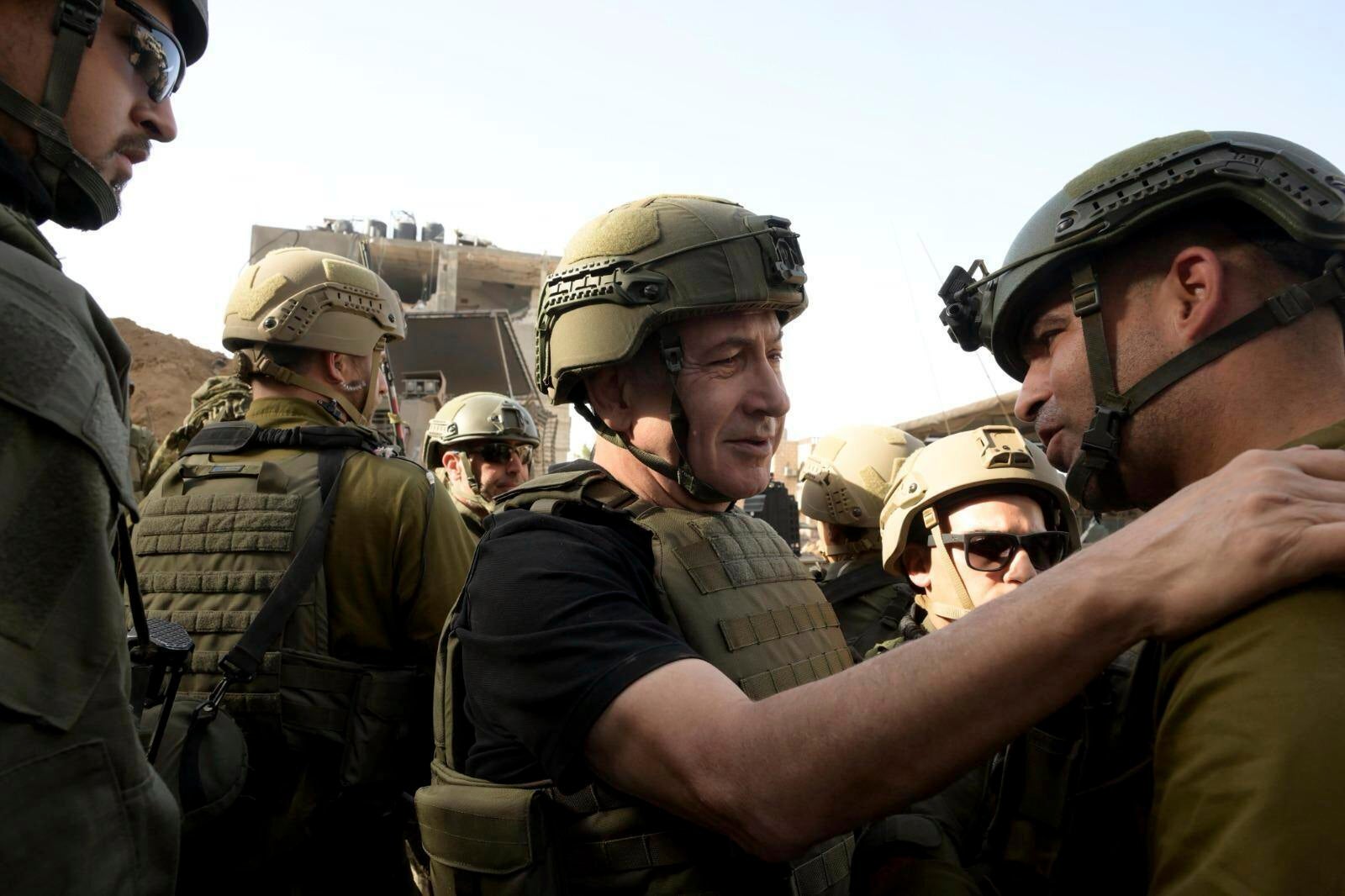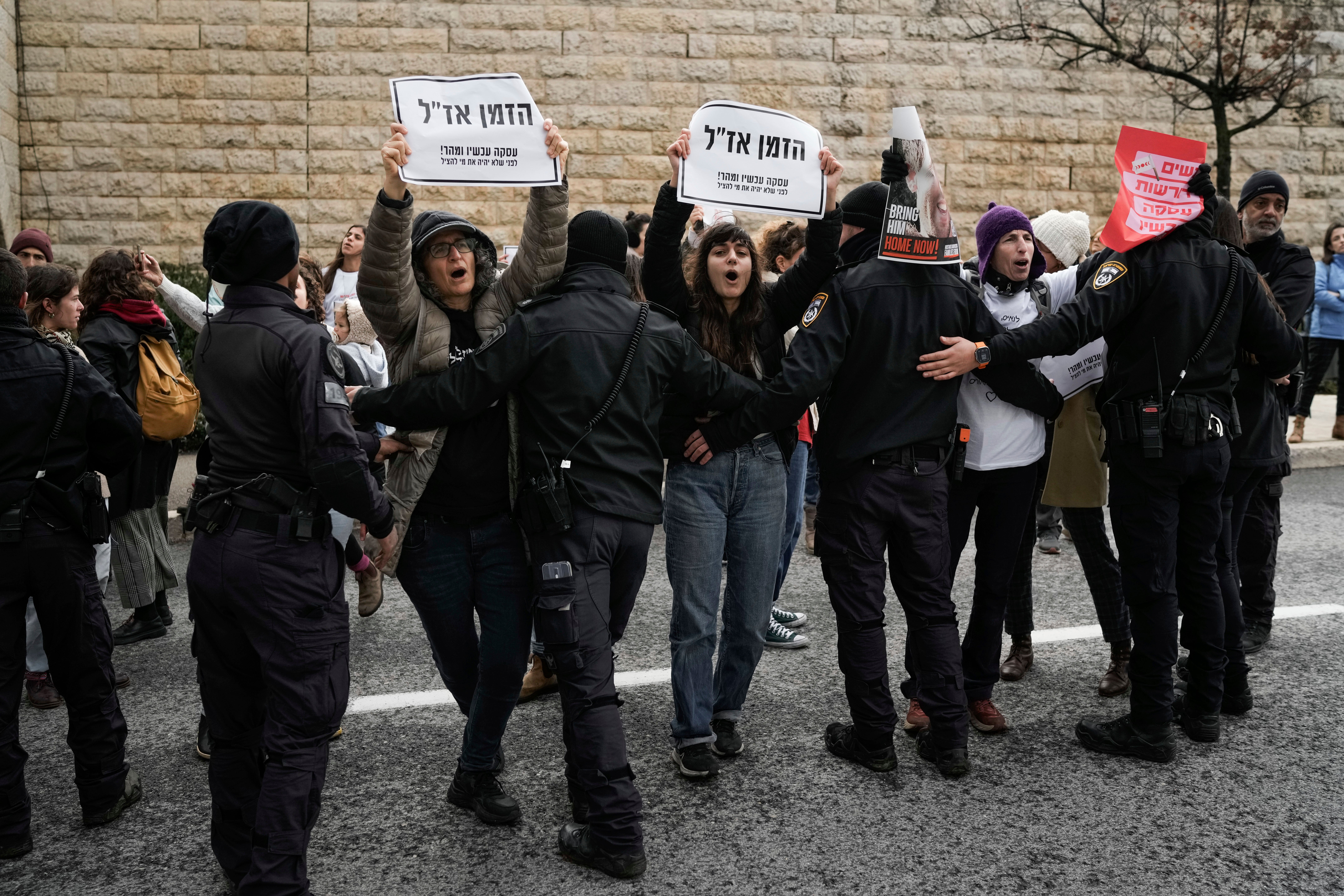Qatar accuses Netanyahu of deliberately obstructing Gaza talks for political gain
Doha ‘appalled’ at Israeli prime minister’s alleged remark that Qatar’s mediation role in ceasefire and hostage-release negotiations is ‘problematic’

Qatar has hit out at the Israeli prime minister Benjamin Netanyahu, accusing him of seeking to gain political advantage through what it suggested was a deliberate attempt to obstruct efforts to negotiate a ceasefire in Gaza and the release of hostages.
Qatar said it was appalled by leaked remarks, allegedly made by Mr Netanyahu, that described the Gulf state’s role in efforts to secure the release of the approximately 130 hostages believed still to be captive in the Gaza Strip as “problematic”.
In response to the reported comments, Qatari foreign ministry spokesperson Majed al-Ansari wrote on X, formerly Twitter: “These remarks, if validated, are irresponsible and destructive to the efforts to save innocent lives, but are not surprising.
“If the reported remarks are found to be true, the Israeli PM would only be obstructing and undermining the mediation process, for reasons that appear to serve his political career instead of prioritising saving innocent lives, including Israeli hostages,” he added.
Israel’s Channel 12 obtained what appeared to be recordings of Mr Netanyahu made during a behind-closed-doors meeting with family members of the hostages earlier this week. In the clip, it reported, he can be heard saying: “You don’t hear me thanking Qatar. Have you noticed? I don’t thank Qatar. Why? Because for me, Qatar is essentially no different from the UN, it is essentially no different from the Red Cross, and in a way it is even ... more problematic.” Israel has maintained for years that international organisations such as the UN are biased against it.
“I am prepared to use any actor at the moment that will help me get [the hostages] home. I haven’t any illusions about [Qatar],” Mr Netanyahu is reported to have said. “They have leverage.”

Qatar, along with Egypt and the US, has been a key mediator around the war in Gaza, which was triggered by a Hamas attack inside southern Israel on 7 October during which around 1,200 people were killed and at least another 240 taken hostage. Israel has vowed to eradicate Hamas, and has launched airstrikes alongside a ground offensive and a blockade, which health officials in Hamas-controlled Gaza say have killed more than 25,000 people over the past three months.
Qatar played a critical role in securing a week-long temporary ceasefire in November, during which more than 100 Israeli and foreign hostages being held in Gaza were returned in exchange for 240 Palestinian women and children who were being held in Israeli jails.
Members of Mr Netanyahu’s government added fuel to the spat on Thursday morning, with far-right minister Bezalel Smotrich accusing Qatar of being a “patron of Hamas” and alleging that the country “supports terrorism and finances terrorism”.
Mr Smotrich went on to criticise the West, claiming that its relationship with Qatar is “hypocritical”. He argued that “the West can and should exert much stronger leverage on it and bring about the release of the hostages immediately”.
Qatar has hosted Hamas’s political bureau in Doha for more than a decade – as well as its supreme leader Ismael Haniyeh, who lives there in exile. The Gulf state is also a close ally of the US, and hosts a sprawling US military base in the desert southwest of Doha.

The dispute adds to Mr Netanyahu’s growing list of problems. Over the weekend, thousands demonstrated across Israel demanding an election, while last Monday, family members of the hostages being held in Gaza staged sit-in protests outside several of Mr Netanyahu’s residences in Israel. The killing of 21 Israeli soldiers in Gaza earlier this week, the single deadliest incident for Israeli forces since the conflict in Gaza began, has increased the pressure on the Israeli prime minister, even if support for the war in general remains high among Israelis.
Ceasefire and hostage-release negotiations are continuing. The proposals currently under consideration are said to include a 30-day pause in fighting, during which the remaining Israeli hostages would be freed in several instalments. The talks have been overshadowed by the heaviest fighting in Gaza so far this year.
In Gaza City, in the north of the embattled territory, 20 Palestinians were killed and 150 injured when a crowd was struck while queueing to collect food aid, said Ashraf al-Qidra, spokesperson for the health ministry in Hamas-run Gaza. The Israeli military said it was looking into the report.
In southern Gaza, where Israeli army operations have been centred in recent weeks, residents said Israeli tanks were shelling areas around two hospitals in Gaza’s main southern city, Khan Younis, on Thursday. Gaza health officials said that at least 50 Palestinians had been killed in the past 24 hours in the city. Hundreds of thousands of Palestinians are currently squeezed into Khan Younis and towns just north and south of it after being driven out of the northern half of Gaza, where Israel initially focused its air and ground offensives.
It came as the death toll in the wake of a strike on a UN complex in Khan Younis rose to 12, the UN’s Palestinian refugee agency said. The agency said two shells had hit its Khan Younis training centre during fighting in the city’s western outskirts on Wednesday, and that dozens of people had been injured.
Israel’s military said it had ruled out the possibility that the incident was the result of an air or artillery strike by its forces. It added in a statement that Israeli operations nearby were being reviewed, and that it was examining the theory that the incident had been caused by “Hamas fire”.
Join our commenting forum
Join thought-provoking conversations, follow other Independent readers and see their replies
Comments
Bookmark popover
Removed from bookmarks